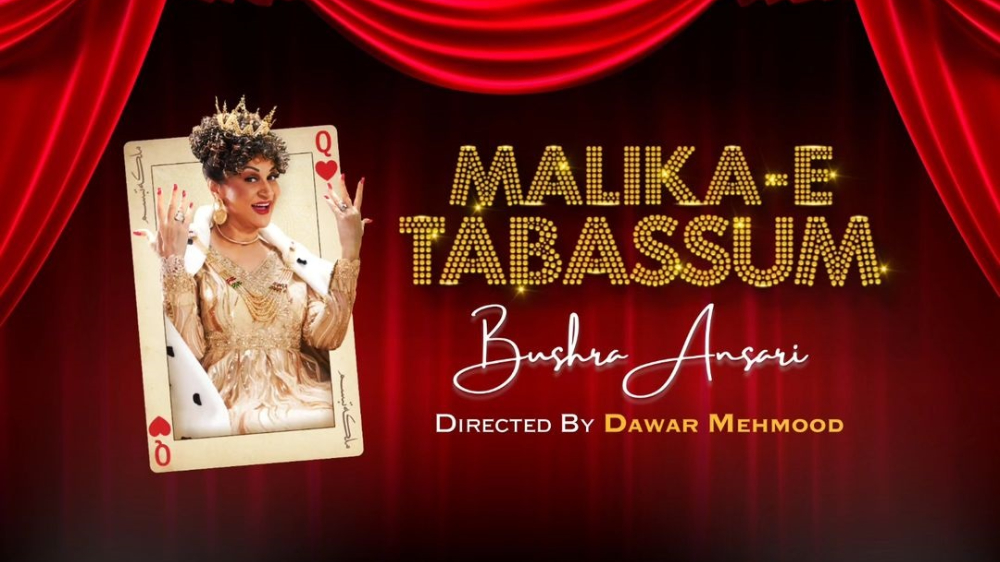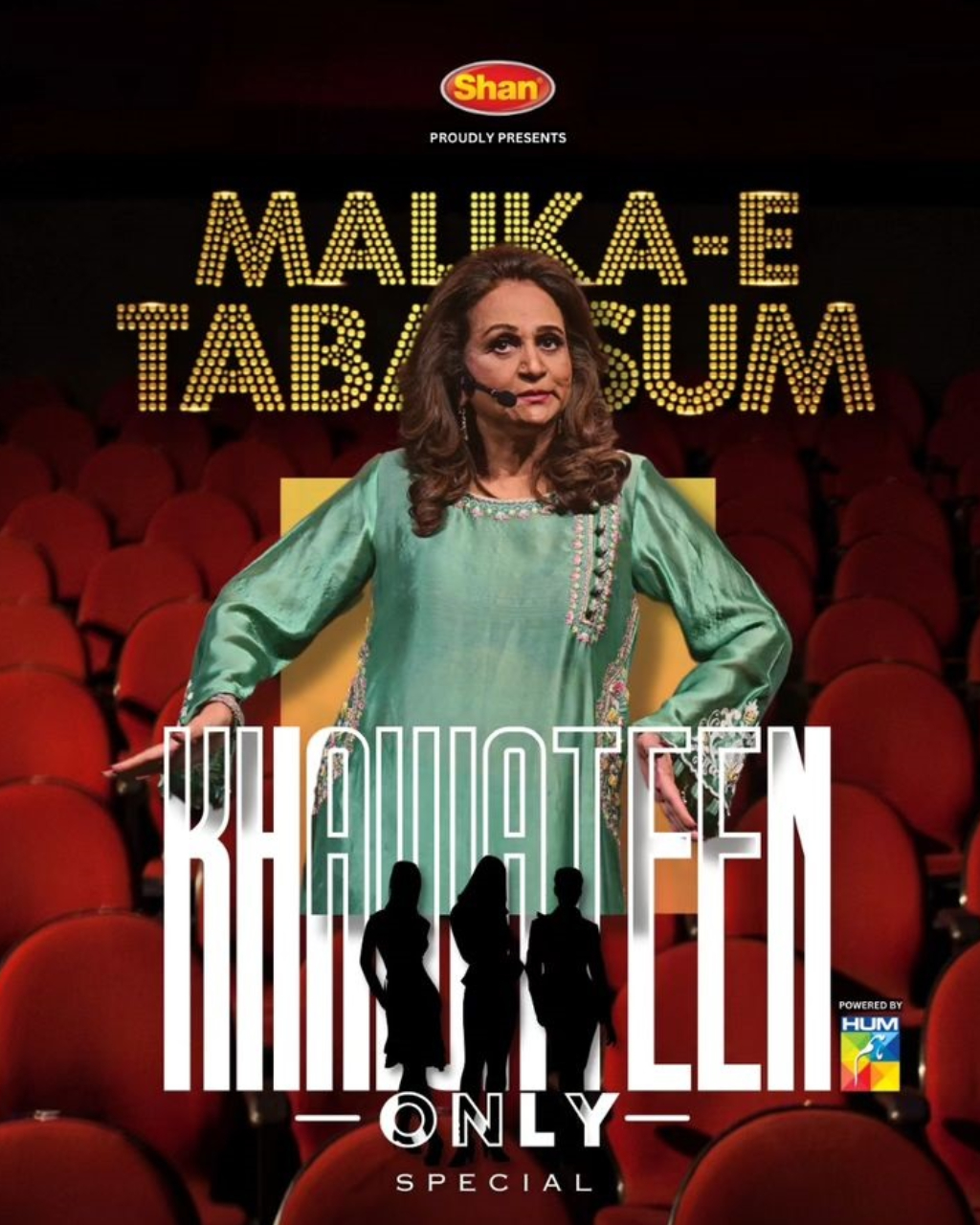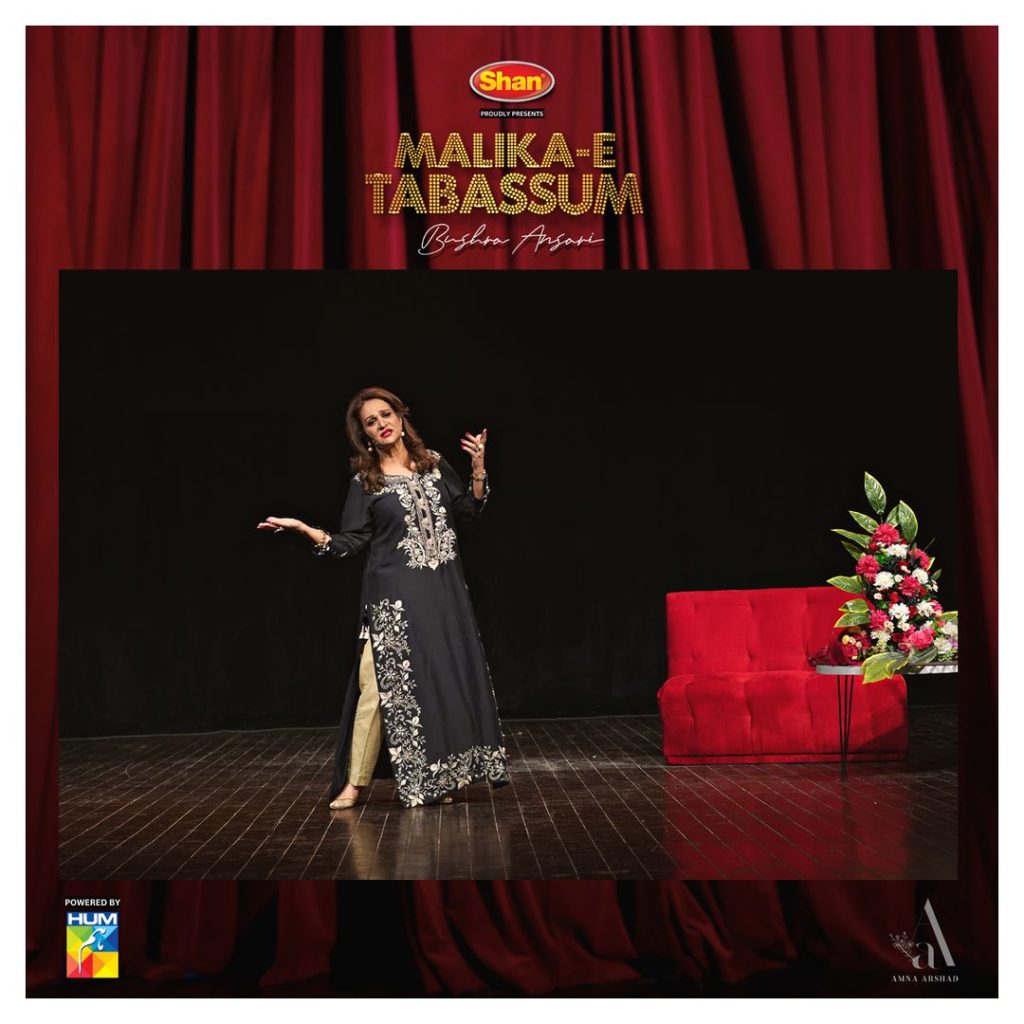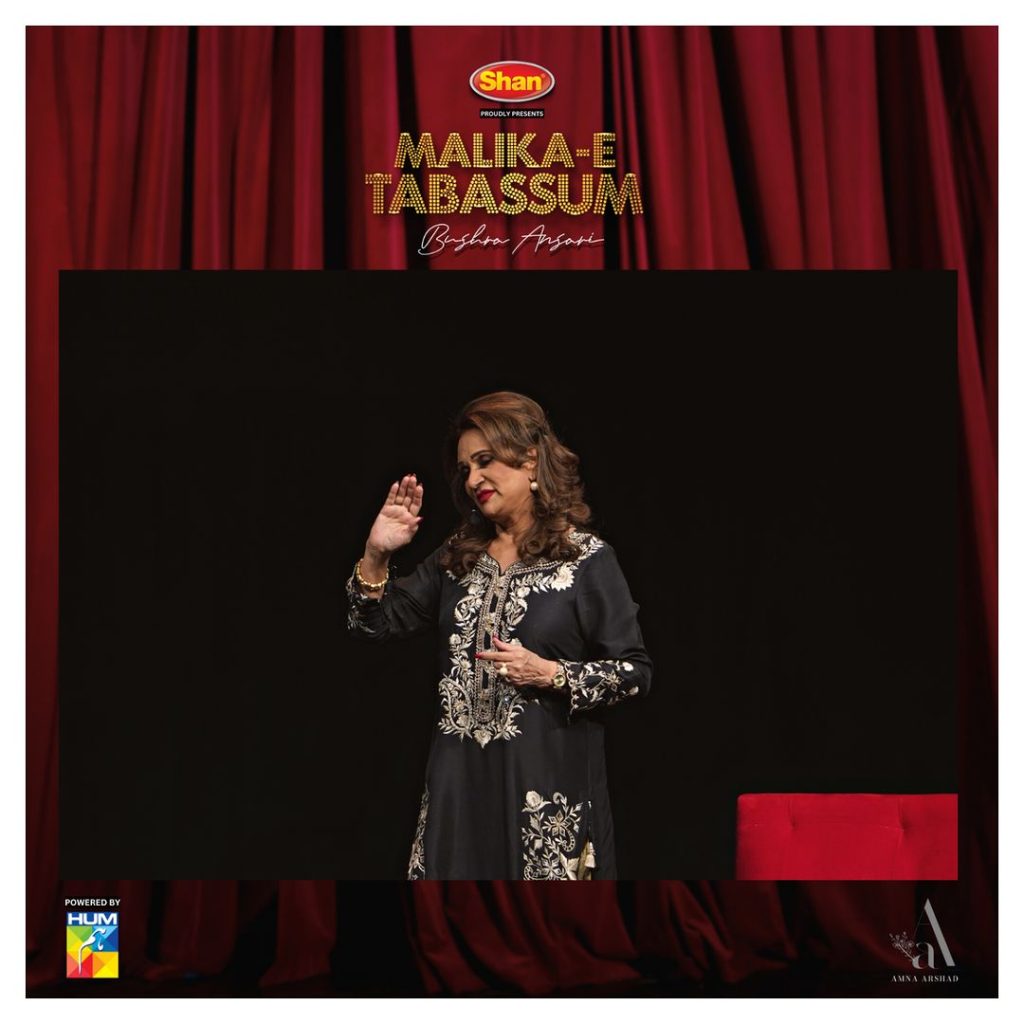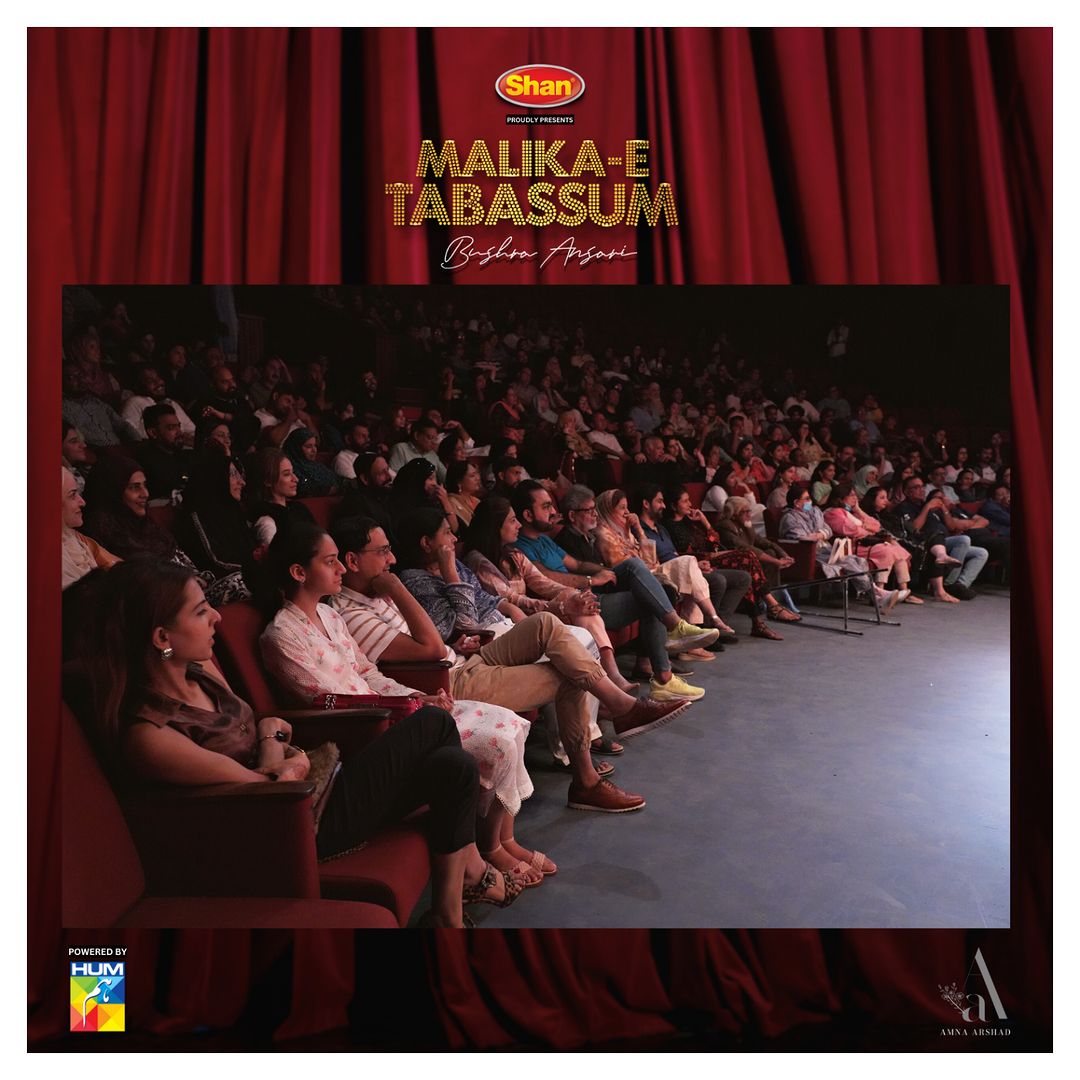Malka-e-Tabassum, starring Bushra Ansari, presents a captivating blend of glamour and drama, although it falls short in delivering comedy.
However, it’s important not to assign blame, as the director, Dawar, shed light on the show’s inception by sharing his strategy for securing sponsors.
According to him, the recipe is simple: add a tablespoon of reverse psychology, sprinkle it onto a shiny woman card, and top it with phrases like “Ap aurton ki azaadi kay khilaf hain [You are against women’s freedom]” and “Aurat hi aurat ki dushman hoti hai, kya ap bhi aisi aurat hain [A woman is a woman’s enemy, are you also such a woman?]”. This formula supposedly attracts sponsors.
After this enlightening crash course by Dawar on event sponsorship, the grand affair commenced with Ansari, adorned in resplendent attire, descending gracefully onto a regal chair. Her infectious laughter reverberated through the air, leaving us teetering on the precipice of anticipation.
Ten minutes into the show, Ansari confidently approached an unsuspecting actor/audience member, swiftly relieving them of their phone.
Engaging in a conversation with an imaginary character named “Rahim Carpenter” on the other end, she playfully handed the phone back to the individual, teasingly remarking that his wife was “very masoom (innocent)” for believing that it was Rahim Carpenter who called. The wife, infuriated by this apparent breach of trust, stormed out of the show, followed closely by her bewildered husband.
As the show progressed, Bushra Ansari enthralled the audience with a captivating display of her family pictures, creatively presented on “Street Carts,” symbolizing the portrayal of her life as a product on exhibition.
In addition, she shared engaging childhood anecdotes and incidents, including her interactions with her sister’s fiancé and candidly discussed her personal experiences of grappling with an underdeveloped body during her teenage years.
With her distinct perspective, Ansari boldly critiqued American and Indian stand-up comedians, labeling them as “vulgar” for Pakistani sensibilities, while positioning her own comedy as “halal”.
The show also touched upon important subjects such as Aurat March, LGBTQ issues, cultural stereotypes, and patriarchy, although these seemed to be included more for controversy than for meaningful discussion. We also witnessed a parody of the iconic Madam Noor Jahan and Nargis’s stage show performances, which Ansari alluded to as vulgar.
The play concluded abruptly, with Ansari leaving the stage. However, she was called back by the host, who presented her with a mock check for her balance payment. Ansari’s humorous response, “Jitnay Paisay Milen Unta hi Kaam Karna Chahiye [One should work in proportion to the money received]”, hinted at a transactional approach to her involvement in the play.
The production had several logical inconsistencies, as the audience’s cell phones were confiscated at the beginning but later relied upon for a scripted scene that required their lights. This inconsistency left the audience perplexed and questioning the overall coherence of the play.
However, one aspect of the show that I genuinely appreciate is KopyKats’ bold attempt to launch a stand-up comedy show on such a grand scale in Pakistan. It was a commendable endeavor, and they deserve kudos for taking on this new and exciting challenge.
I was particularly impressed by Bushra Ansari’s transition from being an actor and scriptwriter to embracing the role of a comedian. It showcased her versatility and willingness to explore different facets of her talent.
That said, the show’s reliance on sensationalism and controversy undermined its potential, leaving the audience with a sense of disappointment and a few unanswered questions: Is this merely a sketch acted out by Bushra Ansari for a paycheck, devoid of true artistic passion? Is this worth Rs 3,000 per person?



